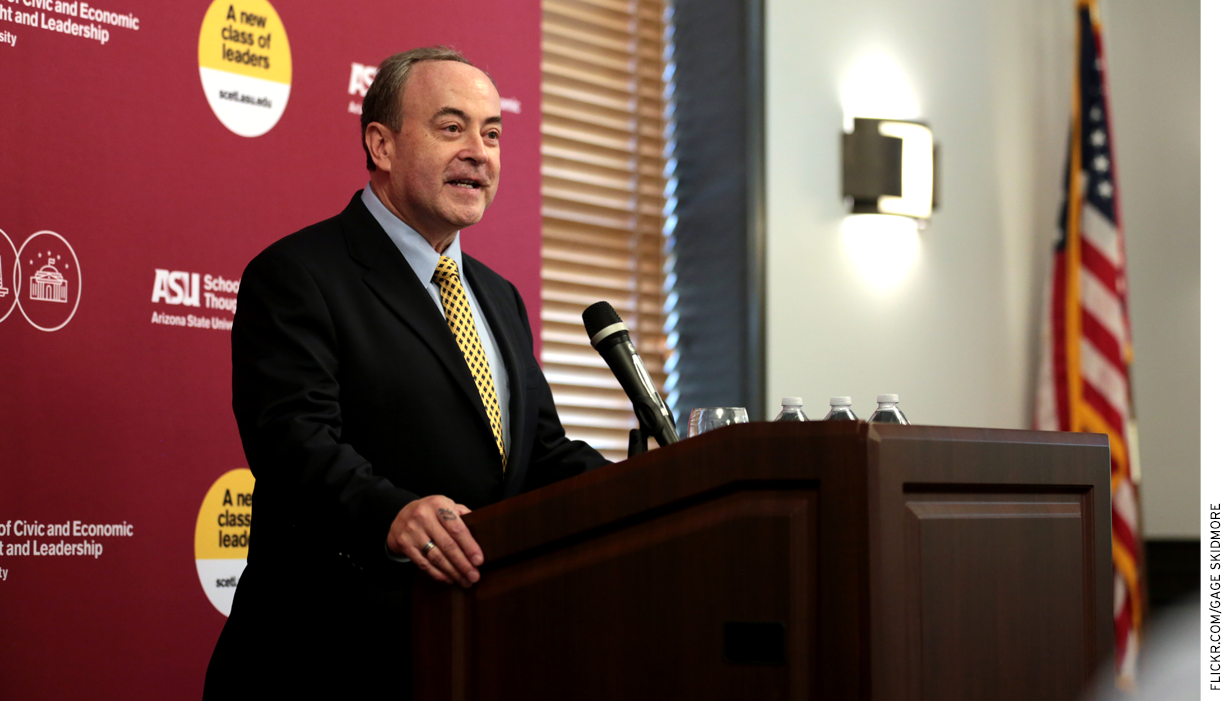
As a lawyer, Clint Bolick worked for decades to protect educational choice for families and challenge barriers to economic entrepreneurship. He co-founded the Institute for Justice, a libertarian public-interest law firm; advocated for choice in Zelman v. Simmons-Harris, where the U.S. Top court upheld a college voucher enter in Cleveland; and served as president from the Alliance for School Choice and v . p . of litigation for that Goldwater Institute. His distinguished record-in 2008 the Legal Times called him one of D.C.'s \”greatest lawyers\” of history 30 years-led Arizona's Republican governor Doug Ducey to appoint Bolick towards the Arizona Supreme Court in 2021. But Bolick has drawn opponents, too. In November, they tried to end Bolick's judicial career.
In Arizona, top court justices face a retention election two years after their initial appointment and every six years thereafter. These elections are normally pro forma, with voters retaining judges by large, comfortable margins. During his first couple of years, Bolick established himself being an independent jurist, together with his committed textualism leading him to sometimes vote against political expectations.
But in August Bolick drew the wrath from the state teachers union once the Arizona Top court voted to remove an education-funding measure in the November ballot. Proposition 207, referred to as Purchase Education Act, was based on the union-the Arizona Education Association (AEA). The measure might have provided an assured funding source for teacher salary increases. It would have risen the wages tax rate on individuals earning a lot more than $250,000 and households earning a lot more than $500,000 by 3.46 percentage points, to eight percent. For individuals earning a lot more than $500,000 and households earning more than $1,000,000, the speed would have spiked to 9 %.
Opponents from the measure sued, stating that the outline provided by the initiative's sponsors was misleading and, therefore, violated state law. The first problem was that the sponsors erroneously stated the measure would trigger increases of 3.46 and 4.46 percent, rather than percentage points. In fact, the proposed percentage-point hikes amounted to respective increases of 76 and 98 percent over the current rates.
What's more, Arizona indexes state income taxes according to inflation. Because the initiative was written, it would have eliminated that indexing and increased taxes much more. Proposition 207's supporters said their intent wasn't to eliminate indexing, but the language from the initiative would have had that effect. In Arizona, sponsors of ballot measures have the choice of submitting their draft text to a legislative council that looks at the language for ambiguities and conflicts, but 207's creators did not submit their draft.
In August 2021, the state top court ruled 5 -2 that the description created \”a significant danger of confusion or unfairness\” and ordered the measure be taken off the ballot. The court majority appeared to discover the effect on indexing to be probably the most troubling issue, stating that if the act's supporters had allow the legislative council evaluate the measure beforehand, \”the question might never have be a judicial one and also the measure could be before the voters.\”
The outcry from the measure's supporters was swift and focused, focusing on two justices up for any retention vote, Bolick and Justice John Pelander, who had been in the eighth year in the game. The AEA and it is allies immediately took to social media to launch an offer to remove both justices in the bench, even though nobody knew until weeks later how any of the justices had voted on the ballot initiative.
The union had amassed a large war chest to aid 207, which it redirected to the campaign against Bolick and Pelander. The union also had support in the National Education Association. In reaction, many leaders from the state legal community, including Paul Bender, the previous dean of Arizona State University's law school, criticized the campaign. Even though he personally disagreed with the court's decision, Bender praised both judges as \”high-quality\” jurists and specifically praised Bolick for being \”thoughtful\” and never \”political.\” Bolick himself didn't operate a formal campaign but did give interviews and speeches to various groups, emphasizing his strong scores from the Arizona Commission on Judicial Performance.
AEA's campaign failed in November. Bolick was retained with 70 % from the vote and Pelander with 71 percent. Judges on lower courts were retained with slightly larger margins of 73 to 75 percent. Bolick now has another six years to place his textualism into action. One suspects it won't be the parade of horribles predicted by the individuals who just attempted to remove him.




